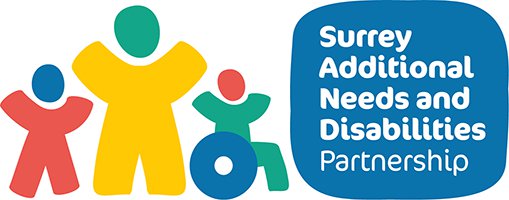Medical conditions and education
Your child's school has a legal responsibility to make necessary arrangements or adjustments to meet your child's health needs.
As soon as you know that your child has a long-term illness or medical condition you need to talk to their school so that the school can provide necessary support. If your child has a disability, the school must make 'reasonable adjustments' to make sure they are not discriminated against. The school may suggest putting in place an Individual Healthcare Plan.
You can find out more about the support your child should receive by law, in the statutory guidance for supporting pupils with medical conditions at school.
Individual Healthcare Plans (IHPs)
Where a child has a medical need an Individual Healthcare Plan (IHP) may be used in education to detail what sort of care the child needs at school.
What is an Individual Healthcare Plan (IHP)?
IHPs are for children with either physical and/ or mental health conditions. It details what medical needs a child has and how they should be treated. They ensure that schools know how to support the child effectively and to make clear what needs to be done, when and by whom.
An IHP details what sort of support a child needs to participate fully in school life, including physical education and school trips. It is a written document that specifies what sort of help the school can provide for your child – for example, what medicines they can administer, and what to do in a medical emergency.
Depending on the individual child, a student may manage their own medical needs. For these students, their IHP will document whether the child carries their own medication to administer themselves. If a child does not want this responsibility, then staff should support them until they are able to do so on their own.
An IHP should be kept confidential, but it will need to be shared with anyone who might need to support the child's medical needs or deal with an emergency involving the child (for example, midday supervisors who monitor the dining hall and playground at lunchtime).
IHPs should be reviewed at a date set by parents and school staff in charge of the child's care plan. We recommend that plans are reviewed at least once a year. Plans may be reviewed more frequently depending on the child's specific medical needs.
Does my child need an IHP?
Most children with a medical need will not require an IHP. They are usually only necessary for children with complex medical needs.
There is not a strict set of criteria which determines whether a child should have an IHP. Each child is an individual who copes differently with various medical conditions. One child with the same medical condition as another may require an IHP, whereas the other child doesn't.
Common medical needs that may require an IHP are asthma, epilepsy, diabetes, and allergies, but there are many other conditions where a child may require a plan.
The IHP is developed in partnership between the school, parents, students, and the relevant healthcare professional who can advise on a child's case. IHPs should be made with the child's best interest in mind.
What information should an IHP include?
IHPs should aim to provide any necessary information about how to best care for the child and what to do in emergency situations.
An IHP should include:
- child's details (name, address, date of birth, class)
- details about their condition (description, symptoms)
- daily requirements (what medication they require and dosage, i.e. aspirin, inhaler, as well as any dietary needs)
- who will administer medication (who provides support and care)
- side effects of medication
- family contact information (names, contact numbers, address, relationship to the child)
- GP and hospital contact numbers and names
- medical emergency (what action to take, who to contact)
- date of when the plan was created and when it is next reviewed.
Some children with medical conditions may be considered disabled under the definition set out in the Equality Act 2010. Where this is the case governing bodies must comply with their duties under that Act.
Individual Healthcare Plans are different from Education, Health and Care (EHC) plans, which set out the support needed by children with special educational needs. Although some children may have both types of plans, having a medical need does not automatically mean that a child has a special educational need.
Children with long-term illness
If your child is of school age and unable to go to their regular school because they are in hospital or they have a long-term medical condition, we can help them continue their education.
This may include:
- home tuition
- education at a local centre or other office education in hospital.
- education in hospital.
The type of help offered will depend on your child's specific illness or medical needs.
Some children in Surrey, particularly those missing out on education, may need extra support from us. We provide this through alternative learning services such as Access to Education (A2E) and Surrey Online School.
Short hospital stays or illnesses don't qualify for this type of support.
For more information, see Alternative learning for those with additional educational needs (surreycc.gov.uk).
Continuing Health Care
Children's Continuing Health Care is care arranged and funded by the NHS outside of hospital for people who have ongoing healthcare needs. This is usually because they have a complex medical condition that requires a lot of care and support, or because they need highly specialised nursing support.
You can discuss a referral with your healthcare professional or GP.
